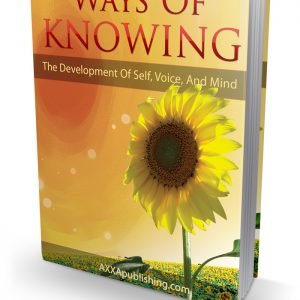Death Will Come To You In The Relatively Near Future And Why You Should NOT Fear Death
Woody Allen famously quipped, “I’m not afraid of death; I just don’t want to be there when it happens.”
There are many rational things to worry about when we contemplate our own death—perhaps foremost among those is the concern about how our surviving loved ones will cope emotionally and materially without us. But many of our worst fears about death are less realistic and based more on how we imagine death to be. This article is about those unfounded fears.
In modern Western society, most people have little direct experience of death, and we don’t like to talk about the subject. Our society is organized in such a way that the dead are quickly removed from us, and those traditions that do encourage viewing the dead do so only after careful cosmetic preparation by specialized morticians, often resulting in the dead looking more like an elegant wax model replica of the living person. Attendance of children at funerals and cemeteries is generally not encouraged, adding to the sense of dreaded unfamiliarity with death with which many of us grow up.
Fear of pain
There’s no reason to expect that the actual process of dying is any worse physically than what you or other still-living people have already previously experienced.
For most people, the terror of the actual process of dying probably involves a fear of physical pain. It also probably involves fearful incomprehension of the seemingly mysterious process by which the consciousness that is our “self” is extinguished, or fades away.
Let’s deal first with our fear of a painful death. We are all afraid of pain. We have all had much experience of physical pain, some more than others, and we are quite likely to have witnessed more extreme pain and agony in others than we have experienced ourselves. All this makes us fear pain. Physical pain arises from damage to our living tissue. Since death is the ultimate destruction of our living tissues, we naturally assume that death must be the ultimately painful experience. Since nobody who has actually died can tell us what it felt like physically, we naturally have a terror of dying.
But in fact, rationally and from a medical point of view, there is no particular reason to suppose that the intensity of pain (or other forms of discomfort or impairment) from various causes of death is greater than the intensity of pain from various illnesses and injuries that we ourselves may already have previously experienced, or the pain that others have experienced and survived to tell the tale. Furthermore, dying in and of itself does not necessarily involve painful processes—some forms of death are painful and others are not. And many acute injuries are actually more painful afterward (in people who survive them) than they are at the moment of injury.
However, not to sugar-coat this subject—certainly many of the people who have survived more extreme forms of agonizing injury or illness would never want to re-experience it, and some are psychologically traumatized by the experience for a long time afterward (bear with me—we are talking just for a moment about worst-case scenarios). There’s every reason to expect that the pain and suffering are just as bad if not worse for those who survived such injury or illness than those who died. Yet even the most traumatized survivors have in very many cases gone on to live fulfilling lives and are able to talk about the experience.
So, while we certainly wish to never experience such a thing, even in the worst of our nightmarish death scenarios the actual pain in and of itself is something that can certainly be endured and survived, as shown by our fellow human beings. The extent of the human capacity to endure suffering is often very surprising. And what we have just spoken about are the most extreme cases of pain and suffering, not the more common scenarios.
Cessation of consciousness
What about the process by which our self-aware consciousness and the entirety of our subjective experience abruptly ends? Since death, from a biological point of view, entails a complete and utter extinguishing of consciousness, being dead will not feel like anything—no more so than you felt, say, a year before you were born. There simply will be no you to do the feeling (It can be hard for us egotistical creatures to imagine that the world exists independently of whether we ourselves exist to experience it).
As evolutionary psychologist Jesse Bering reminds us, “Consider the rather startling fact that you will never know you have died. You may feel yourself slipping away, but it isn’t as though there will be a ‘you’ around who is capable of ascertaining that, once all is said and done, it has actually happened.” This point was made some 2,300 years ago by the Greek philosopher Epicurus, who wrote: “Why fear death when we can never perceive it?” The Roman Epicurean philosopher Lucretius later pointed out that our state of non-existence for the eternity of time after our death is the same state as for the eternity of time before our birth.
Apart from the nightly experience of falling asleep (especially deep, dreamless sleep), the actual process of losing consciousness due to injury or illness, as well as induced by anesthesia, whether sudden or gradual, is an experience that many of us have had. There is no reason to think that the experience of temporarily losing consciousness is any different from the experience of permanently losing consciousness, in terms of how the actual process feels.
People may feel themselves losing consciousness, only if it is gradual, but nobody actually experiences unconsciousness itself, unless they are in a light state of unconsciousness with partial awareness, or dreaming. Indeed, people who have been resuscitated after technically being dead for a few minutes do not describe the subjective experience of their loss of consciousness any differently compared with those who lost consciousness from other, transient causes. And why should they?
So our sense that the process of dying is something completely alien from any living human’s experience is actually mistaken. We have a pretty good sense of what dying feels like, either from our own first-hand experience or from the accounts of others (accounts of living people, no need for a séance! No magical beliefs are required in this exercise of reality-checking reassurance). And once one has actually died, being dead doesn’t feel like anything whatsoever, obviously. There’s simply no you to do the feeling.
Grabbing life by the horns
Awareness of our mortality can be a profound challenge to our self-image of being an all-important, indispensable, independent entity in the universe. Or it can fill us with a sense of the preciousness and fragility of this opportunity, the value of a life. It can inspire us and motivate us to live life to the fullest, with a sense that we should not waste our days—to experience, to learn, to grow, to connect, and to contribute to those around us and those who will follow us.
Or, as the psychiatrist Irvin Yalom put it, in Staring at the Sun: Overcoming the Terror of Death: “The way to value life, the way to feel compassion for others, the way to love anything with greatest depth is to be aware that these experiences are destined to be lost.”
Our mortality and finitude remind us of the urgency of living here and now, with full engagement in life and with dedication to those around us. When death comes for us, let it find us among the living.















